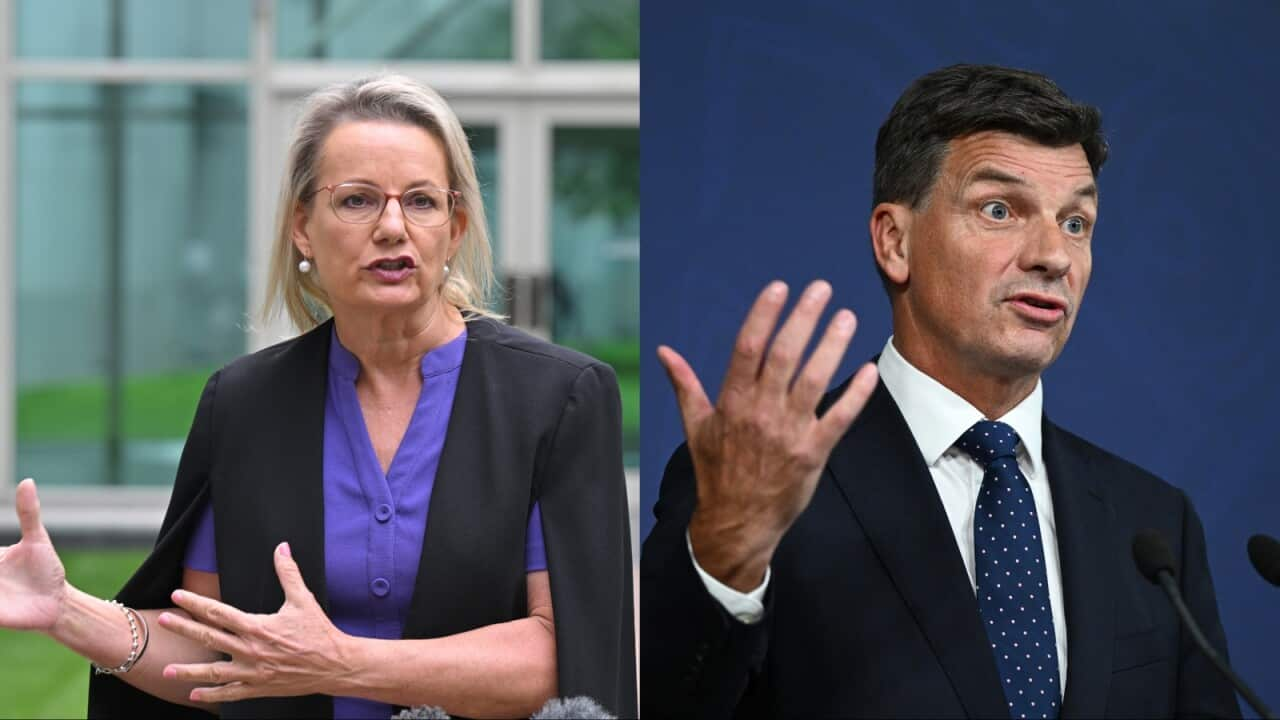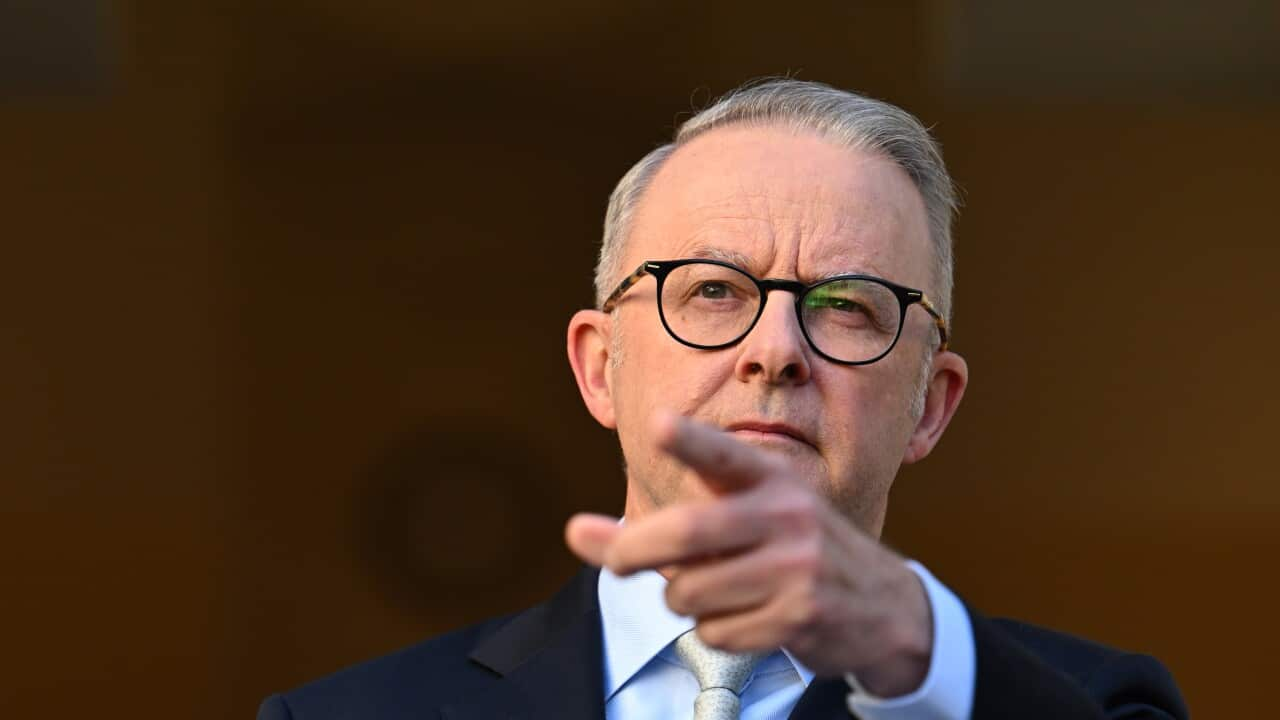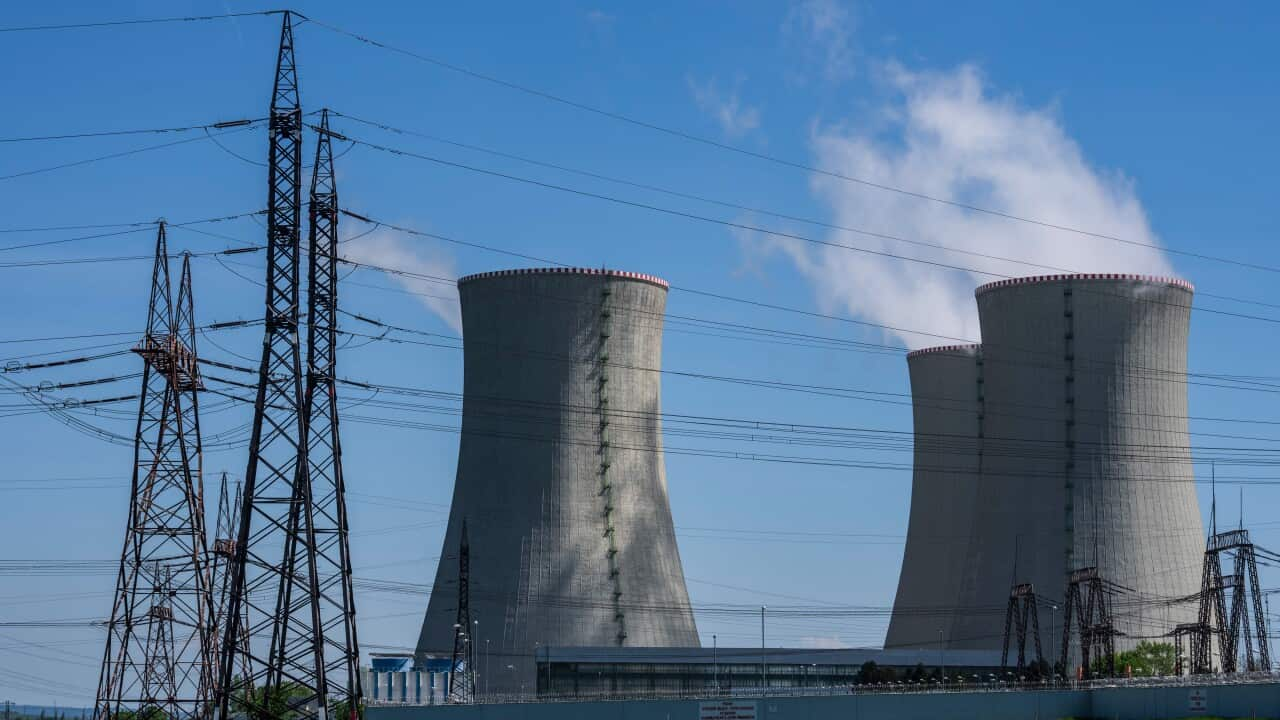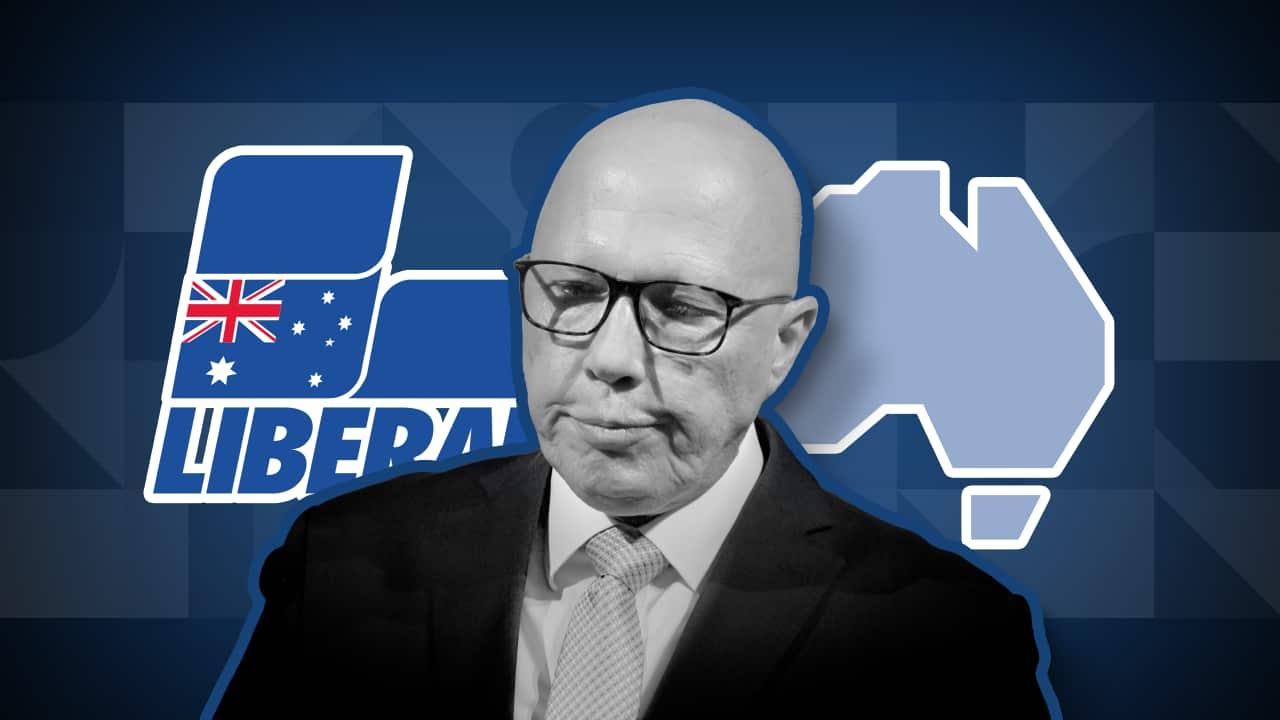After an election wipeout that cost Peter Dutton both his seat and the party leadership, two main candidates have emerged to replace him.
Conservative Angus Taylor is set to face off against moderate Sussan Ley when the Liberal party room meets later on Tuesday to vote for a new leader.
Meanwhile, , just days after joining the Liberal party room.
Experts speaking to SBS News agreed on the steps the Liberal Party needs to take to win back voters.
They said the party needs to appeal to:
- Moderate voters
- Professional women
- Younger voters
- People living in cities
Liberals face pressure to reform
John Mickel, former Labor MP and adjunct associate professor at the Queensland University of Technology, said the Opposition could make a comeback to win the next election if it shores up support with these demographics.
"Every election is contestable because parties have the capacity to remake themselves," he told SBS News.
"The Liberal Party base now is all baby boomers. The problem with baby boomers is they're departing the scene. They will get older over the next three years, whereas the generations coming through don't seem to be getting more conservative as they get older.
"They seem to be maintaining a rage, if you like, against the established parties."
So, who is best placed to do that as the Liberal leader?
Mickel said it is difficult to predict whether Ley or Taylor would come out on top, as some members are also pushing MP Tim Wilson to enter the race — suggesting dissatisfaction with the two current frontrunners.
If it wants a chance at winning the next election, Mickel said the party will need to "refurbish" itself on key issues that matter most to voters.
Party unity expected on economic policies
Mickel said solid economic policies would be crucial to the Coalition regaining its footing.
Amy Remeikis, the chief political analyst for policy think tank The Australia Institute, said the Liberal leadership is unlikely to be split on issues relating to the economy.
She said while Ley is more moderate than the conservative-leaning Taylor, economic policies that focus on the federal budget's bottom line tend to unify the party.
"For example, having a structural surplus, which means that the government does not spend more money than it makes, is something that the conservatives have been very, very concerned about," she told SBS News.
"There's also usually issues around productivity growth that they want to focus on tax reform, basically trying to eliminate tax brackets because the Liberals believe in lower taxes, while also limiting government spending and programs because conservative Liberals in particular believe in smaller government."
Remeikis said the Liberals could have to adapt their approach to economic policies if they want to regain voters, particularly in areas neglected by the private sector.
"In 2025, people do expect their government to fill some of the gaps that the private sector has left," she said.
"There's an expectation the government would continue providing growth in the NDIS, in health and education, and people are not as opposed to budget deficits as they may have been 30 years ago under the Howard government."
Environment stance key to winning back seats
Dr Mark Rolfe, a lecturer in the school of social sciences at the University of NSW, said economic policies would not necessarily determine the next Liberal leader.
He said while it's too early to predict where the party will stand on economic issues, there's a clear divide when it comes to environmental policies.
"The shrapnel is still flowing from the election weekend, so it's a bit hard to tell how the party will sort itself out," he told SBS News.
Rolfe said Taylor, along with other conservatives, would generally be more supportive of coal, gas, and nuclear and opposed to renewables, compared to Ley.
"I don't see him [Taylor] being a pro-climate change candidate, but Ley would be more in favour, to an extent, of dealing with climate change," he said.
Rolfe said the next leader's approach to environmental and climate change issues could be crucial to winning back seats in metropolitan areas that have backed teal independents.
"We will continue to see Liberal moderates decline until we get recognition from the Liberals that they need teal voters," he said.
"Until they start to say we were wrong about giving up on teal voters, they're going to be sending all the wrong signals to moderate Liberal voters and to a lot of women because the teal vote is associated with women in many ways."
LISTEN TO

Labor's Ed Husic criticises factional power play; Liberals meet to choose new leader
SBS News
05:14
Views on social justice
The Coalition could also be divided when it comes to social justice issues and flashpoint debates like religious freedoms and the "culture wars," according to Remeikis.
"We've already seen some disagreement when it comes to the Voice and to First Nation and Indigenous recognition, where we saw that certainly in the last weeks of the election campaign where they were having the discussion about Welcome to Country ceremonies and whether they should be part of just general Australian life," she said.
"There have been splits around religious freedoms, particularly when it comes to protecting children and staff who fall under the LGBTIQ banner and whether or not religious organisations, such as schools, are able to exclude children and particularly staff if they go against their religious teachings."
Remeikis said Taylor appeared to be moving to the conservative right in his views on social issues, and Price's endorsement of him as a leader is a clear signal of that alignment.
"Price has raised her concerns around trans protections in Australia and has said that it's one thing she would like to see raised to levels that we've seen in the UK," she said.
in April, a decision hailed by some as clarifying legal rights but condemned by trans advocates as "another attack" on their rights.
Remeikis said Taylor bringing Price on board was acknowledging the right-wing base in order to bring the party back to the centre.
Whereas Ley is looking to bring the party to the centre "in its entirety", she said.
Regardless of who wins the leadership, a big challenge will be uniting the wide-ranging beliefs of the party at a time when "they're too divided", Remeikis said.
LISTEN TO
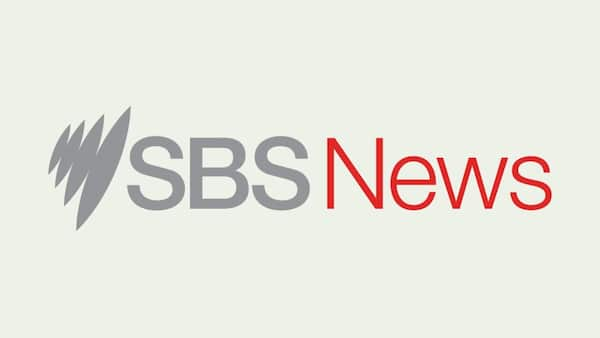
Liberal Party continues to consider leadership options
SBS News
00:44
What about Tim Wilson?
John Wanna, an emeritus professor in political science from the Australian National University, told SBS News the party will have to make serious reforms if it wants to stay relevant to voters.
As it stands, he views Taylor and Ley as lacking the capacity to construct an economic narrative.
"They have a dearth of talent at the moment; they would like to have some fresh faces," he said.
"And you have Price going for deputy, and a lot of people I speak to think she is a loose cannon."
Wanna said he hoped the newly elected Wilson would put his hand up for the leadership role.
LISTEN TO

The winds of change blow through Goldstein as Tim Wilson claims victory
SBS News
04:54
"I think Tim Wilson would be their best bet, if he was prepared to put his hat in the ring," Wanna said.
"He's just won the Liberals back the seat of Goldstein in Victoria, which is a big plus. They didn't win many seats as opposed to losing seats.
"And he's very sensible, he's very talented."
The party also needs to focus on reforming its state-based parties, he said, so they can better function and support a future federal Liberal government.
